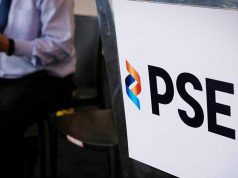Regulator OK’s CMIC rules on SBL, short selling
THE Securities and Exchange Commission (SEC) approved the guidelines prepared by the Capital Markets Integrity Corp. (CMIC) on securities borrowing and lending (SBL) and short selling.
In a statement Thursday, the country’s corporate regulator said the commission en banc on Dec. 17 approved CMIC’s guidelines, but noted this is “subject to the adoption of certain amendments” by its Markets and Securities Regulation Department.
While the SEC had previously approved guidelines on short selling transactions by the Philippine Stock Exchange, Inc. (PSE) in June 2018, and the PSE retains jurisdiction over all short selling transactions, CMIC’s guidelines were made to address other concerns such as the effect of SBL and short selling on trading participants’ books and records, error transactions and any effect on the risk-based capital adequacy (RBCA) ratio of trading participants.
These guidelines, as approved by the SEC, will limit short selling transactions to “eligible securities” or those that are owned by companies in the PSE index (PSEi). Trading participants are tasked to ensure that all involved parties in a short sale transaction have the necessary borrowing arrangements prior to any deal.
The rules require that all lending securities are registered with the SEC and have a Securities Lending Authorization Agreement, and that borrowing parties have a Master Securities Lending Agreement before any transaction.
Trading participants are required to accomplish a stock credit memo for the entry of securities for the borrower, and stock debit memo for securities of the lender. For the return of shares, the participants must secure a stock debit memo for the entry of securities for the borrower, and stock credit memo for the securities of the lender.
The participants are also required to indicate if any deal is being done as a short sale transaction, as indicated through its account with the Philippine Depository & Trust Corp.
Naked short selling is prohibited under the CMIC rules, as customers doing a short sale transaction must execute a notarized undertaking to ensure parties have full understanding of relevant securities laws, rules and guidelines.
The rules also require participants to submit biannual summary reports of outstanding and liquidated SBL transactions and stock returns, together with a certification of submission of said reports to the Bureau of Internal Revenue.
“With the implementing guidelines on short selling in place, we look forward to more robust activity in the stock market,” SEC Chairperson Emilio B. Aquino was quoted in the statement as saying.
“The Commission, however, notes that it shall not balk at exercising its authority to suspend or prohibit short selling in an exchange when necessary for the protection of investors,” Mr. Aquino added. — Denise A. Valdez



